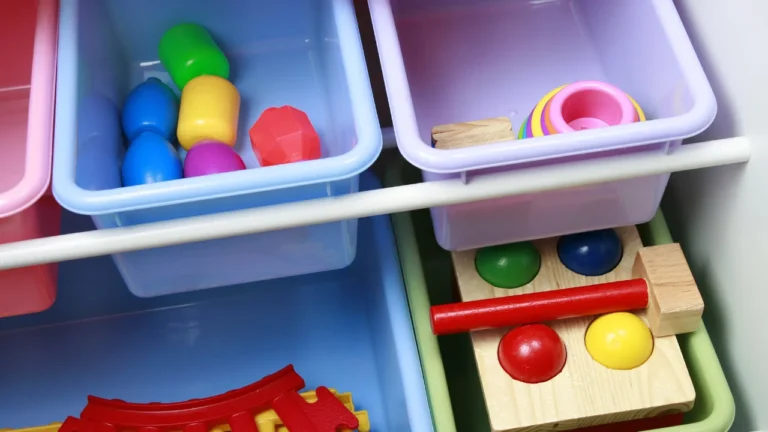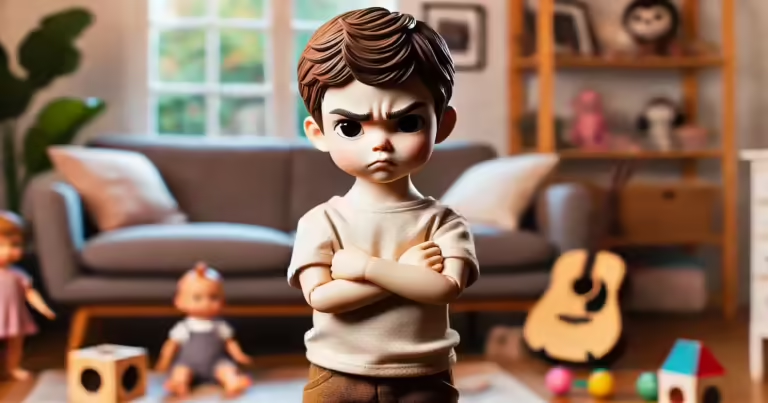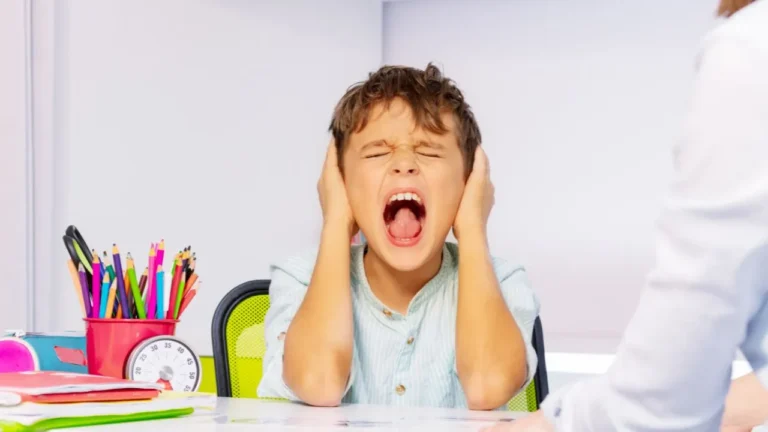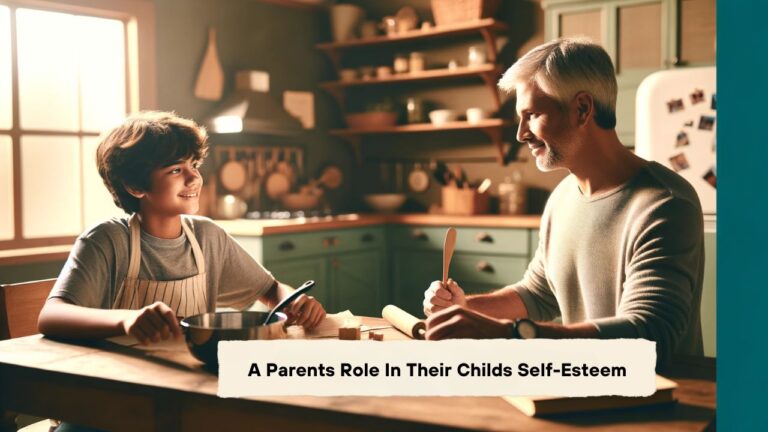Why Toddlers Love Repetition? Unpacking Repetition in the Early Years
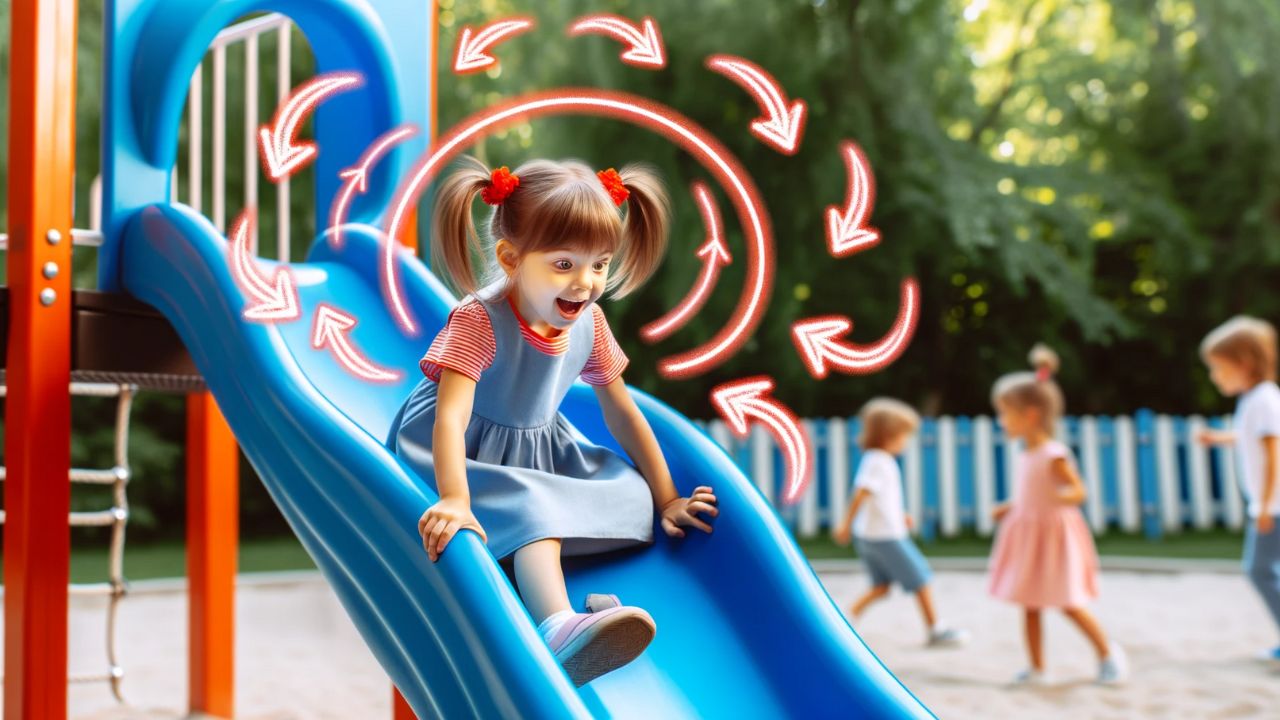
Imagine another evening unfolds as you find yourself reaching for your toddler’s favorite book, “Llama Llama Red Pajama.” You know the lines by heart, a testament to the countless nights it’s been the bedtime story of choice.
Despite your gentle suggestion to switch to “The Very Hungry Caterpillar” tonight, your toddler is insistent, clasping “Llama Llama” to their chest with a determined “No! This one!”
This scenario is far from unique. Many parents find themselves in a similar repetitive loop, which, believe it or not, plays a crucial role in their child’s development. Engaging in the same activities repeatedly not only aids toddlers in learning but also provides them with a comforting sense of stability and predictability.
In this article, we’ve combined insights from developmental psychologists with real-life experiences from parents to delve deeper into the fascination toddlers have with repetition.
You’ll discover why this seemingly monotonous behavior is vital for their growth, how to respond effectively, and when it might be worth discussing patterns with your pediatrician.
Join us as we explore the benefits and challenges of this common developmental phase.
Why Do Toddlers Like Repetition?
You’ve likely noticed your toddler asking for the same bedtime story night after night. While it might seem they are just enamored with the characters, there’s substantial educational value in this repetition.
Unlike older children who struggle to grasp numerous new words in a short time, toddlers can significantly benefit from the repetitive reading of storybooks.
Research shows that while school-aged children often learn only a few new vocabulary words despite intensive efforts, toddlers exhibit an impressive ability to absorb language through repeated exposure.
For instance, studies indicate that older children, such as fourth graders, might only learn about three words after hearing a story multiple times over a week. However, younger children, including toddlers, show a remarkable capacity to learn and retain three to four new words from a single story, simply through frequent repetition (Sénéchal and Cornell, 1993).
This is because, at such an early developmental stage, toddlers use repetition not just for enjoyment but as a critical learning mechanism, solidifying new concepts and vocabulary in their burgeoning minds.
So, the next time you’re poised to read “The Very Hungry Caterpillar” for what feels like the thousandth time, remember that each reading helps your toddler’s language skills grow a little more.
Your patience with their favorite story isn’t just indulging a whim it’s fostering an essential educational process. This understanding shifts our perspective from mere repetition to an appreciation of how toddlers naturally optimize their learning and development.
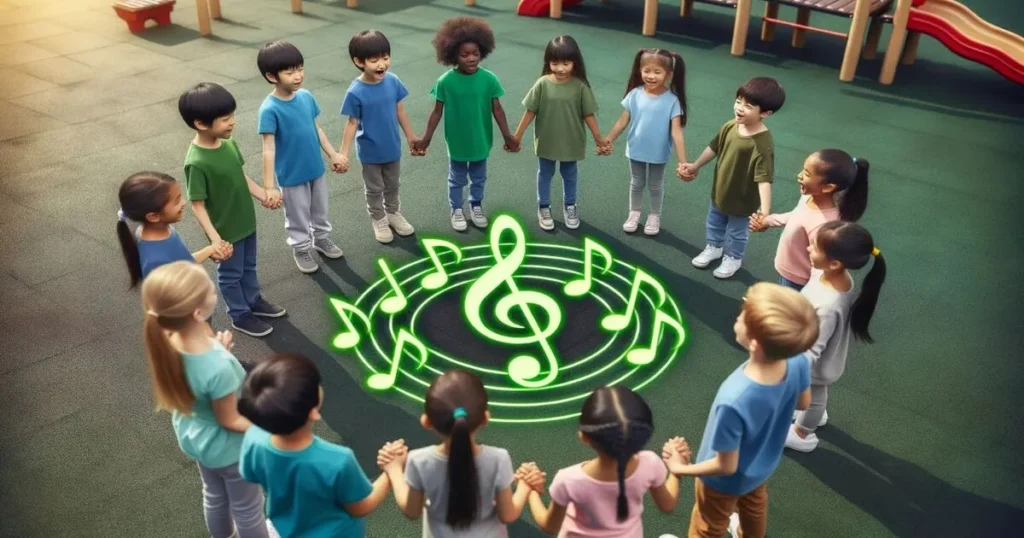
Benefits of Repetitive Play for Children
Alright, so we’ve covered why repetition is a big deal for your toddler, but let’s zoom out a bit. This love for repetition isn’t just a toddler thing it’s a kid thing. Whether your little one is still in the babbling phase or your older child is navigating the world of school, repetitive behavior is a universal childhood trait. So, why is that?
Well, one cool thing is how children incorporate phrases and routines into their play. Ever heard your toddler belt out the ‘clean up, clean up’ song while putting their toys away? That’s the learning through repetition. Music, in particular, is a powerful tool in shaping behavior and helping children understand structures and expectations. It’s not just catchy tunes; it’s teaching them lifelong skills.
For young children, repetitive play is like a sandbox for learning how to navigate the real world. They’re picking up on patterns, understanding cause and effect, and even getting a grasp of complex ideas like time and sequence. And for your toddler, this sort of play is a cornerstone of their development. It helps them make sense of their surroundings and gives them the confidence to explore even more.
So, repetitive behavior in kids, especially your toddler, is far from a bad thing. It’s a crucial part of their growth. Schools and educators are even starting to catch on, using repetition and patterns in classroom activities. If it’s good enough for the educational system, it should put your mind at ease about your own little one’s repetitive play.
Bottom line: Repetition is beneficial for children of all ages. It’s a win-win, enhancing both behavior and development. So the next time your toddler wants to ‘go again’ on the slide for the tenth time, just remember—you’re witnessing growth in action.
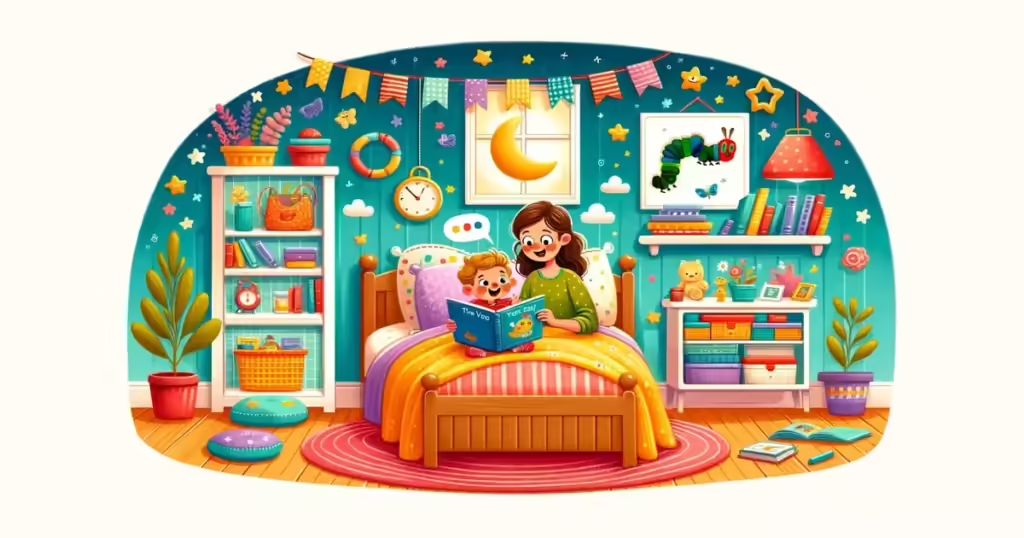
Toddler Development Through Repetition
Okay, so by now, you get that repetition is a big deal for kids, right? But let’s dig in to understand how repetition is not just some phase your child is going through. It’s a foundational building block in the early years of a child’s life, especially for young children.
You know how it’s difficult to tolerate hearing “Baby Shark” for the thousandth time? Well, there’s a reason your toddler is so into it. Repetitive behavior, like listening to the same song or engaging in repetitive play, helps strengthen neural pathways in the brain. It’s like your child is programming their brain, entering and re-entering information until it becomes a permanent part of their memory. That’s how repetition aids in learning.
Think about the daily patterns and routines you have at home. These patterns aren’t just about keeping a schedule; they’re a learning playground for your child. If you go to the park every day, that repeated action helps your kiddo develop physical awareness, dexterity, and even social skills as they start making friends. It’s all part of the big picture of toddler development.
But here’s the kicker: Repetition isn’t just about doing the same thing over and over. It’s also about introducing slight variations within that repetition to enrich learning. For example, songs without words help develop speech by engaging the part of the brain that deals with melody. Chants focus on rhythm and language. Small movements like finger games help with hand-eye coordination, while larger movements like jumping help with spatial awareness.
So, the next time you’re caught in a loop of repetitive play or repeating songs, remember that this isn’t just child’s play. It’s your little one’s way of learning about the world and their place in it, one repeat at a time.
Dealing with Repetitive Questions from Toddlers
Ah, the never-ending barrage of “why” questions. If you’ve got a toddler, you know exactly what I’m talking about. “Why is the sky blue?” “Why do we eat food?” “Are we there yet?” Yeah, it can be a little difficult to tolerate at times. But before you reach for those noise-canceling headphones, let’s dive into why this repetition is happening and how you can deal with it without losing your marbles.
First off, you’re not alone, and it’s not just your child. Repeating questions is super common among young children. And get this: it serves a purpose. When children concentrate on asking the same questions over and over, they’re often seeking emotional support and reassurance. It’s like their own little security blanket of words. Dr. Poinsett notes that this repetitive behavior helps reduce anxiety and fosters trust between you and your kiddo.
But it’s not just about them. When your child incorporates phrases and questions you’ve answered before, they’re also trying to engage with you in a way that has worked in the past. It’s their way of connecting and learning from the ultimate role model you!
So, how do you handle this? Instead of brushing off their questions or showing signs of annoyance (we’ve all been there), try to see it as an opportunity for teaching and bonding. Sure, it can be tough when you’ve answered the same question for the umpteenth time, but remember that repetition is key for their development.
In a nutshell, those repeating questions engage not just your child’s curiosity, but also their emotional well-being. So the next time you’re faced with a seemingly endless loop of “why,” remember that you’re helping to shape a little human who’s learning about the world one question at a time.
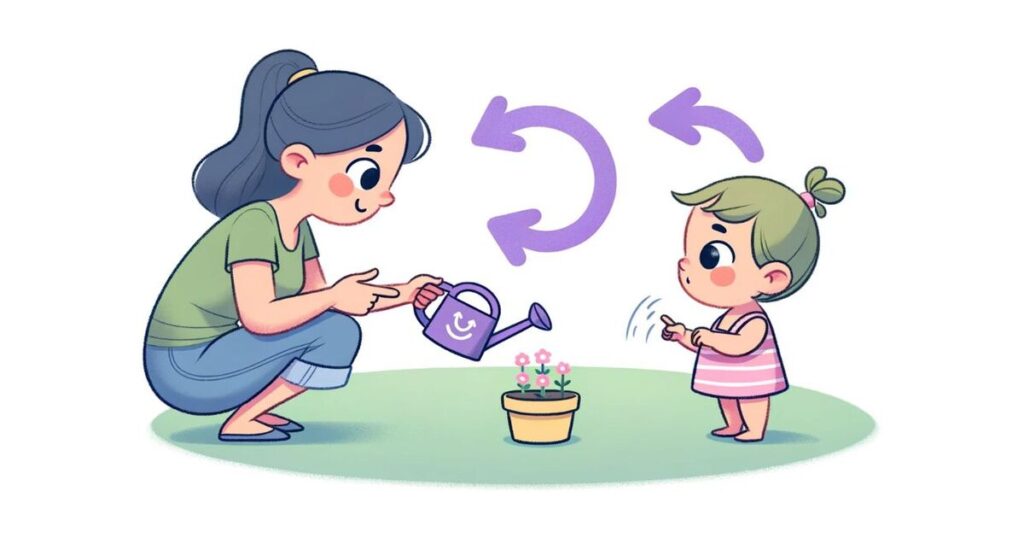
Childhood Anxiety and Repetitive Behavior
So, you’re probably wondering, does all this repetition have a darker side? Could it be linked to anxiety? Well, let’s unpack that because it’s a topic worth exploring.
Now, it’s essential to note that repetition does have a lot of benefits, especially in terms of development. But, like anything in life, there’s a flip side. Studies have shown that there can be a connection between repetitive behavior and anxiety symptoms, particularly in children with autism spectrum disorder (ASD). This doesn’t mean that all repetitive behavior is a red flag, but it does mean we should pay attention.
Repetition helps create a sense of trust and security for your kiddo. When they engage in pretend play or their play mirrors your daily activities, it’s often an instinctive way for them to feel secure. However, if you feel the need to redirect because the repetition is getting too intense, it might be worth taking a closer look. Excessive repetition may also be an indicator that your child is trying to manage some level of anxiety.
The main thing here is context. If your child’s repetitive play or repeated questions are a part of their usual routine and they seem happy and engaged, that’s generally a good sign. It helps them feel secure and nurtures their development. But if you’re faced with a never-ending stream of the same activity or question and you sense it’s coming from a place of stress or worry, that’s when you might want to dig deeper.
So, in summary, repetition is a double-edged sword. On one hand, it’s a building block of development and security. On the other, it could be a sign that your child is grappling with anxiety. Keeping an open mind and a watchful eye is key to understanding what’s going on with your little one.
Parenting Strategies for Handling Toddler Repetition
So you’re on the brink, huh? The never-ending loop of “Llama Llama” readings, the same game played over and over, or the barrage of “why” questions have you teetering on the edge of your patience. Don’t worry, you’re not alone. Handling toddler repetition can be a real test of your sanity at times. But let’s talk about some legit ways you can navigate this repetitive behavior while keeping your cool.
First up, remember that repetition does serve a purpose. It’s a cornerstone of your child’s development. When faced with a never-ending stream of the same activity or question, remind yourself that it’s not just about tolerating their whims it’s about understanding their needs. As Green puts it, “Repetition is the process of the child and not of the adult.”
Now, practical tips. Routines are your friend here. Consistent routines provide a framework for your toddler’s day, so don’t be afraid to set some boundaries within that routine. Maybe designate a “new book” routine after breakfast, where you introduce a different story to break the cycle of reading the same book over and over.
If you’re dealing with repeated questions, flip the script. Ask your child to recall what you said the last time they asked. It’s a gentle way of steering them toward independent thinking. And let’s be real, it’s perfectly fine to plead ignorance when you’re stumped by the umpteenth “why.”
Feeling overwhelmed? Take a break. Trade off with a partner or another caregiver, or encourage some solo play for your little one. It gives you a chance to recharge and reminds your toddler that it’s okay to have some me-time.
Handling repetitive play and questions is part of the parenting gig, especially with toddlers. But a mix of understanding, routine, and a little bit of redirection can go a long way. So the next time you find yourself sighing at the thought of reading the same story multiple times, remember it’s all part of the beautiful, messy journey of raising a tiny human.
Toddlers and Secure Routines
So let’s talk about routines, shall we? You might be asking yourself, “Why is my toddler so hooked on doing the same things at the same times every day?” Well, let me tell you, there’s some real magic in the mundane when it comes to helping your little one feel secure.
The Power of Routine
First off, your toddler is learning new stuff every single day. Whether it’s a new word or figuring out how to put on their shoes, they’re in a constant state of learning. So amidst this whirlwind of something new every day, a consistent routine acts like an anchor.
It gives them a sense of organization and stability. Let’s be honest; their tiny lives are full of big changes, like maybe starting nursery or dealing with the unexpected like a best friend moving away. A routine helps them navigate these ups and downs without feeling completely lost.
The Routine-Confidence Connection
You know what’s cool? Routines help children build self-confidence. When kids know what to expect, they’re more likely to cooperate. Like, if your toddler knows they go to nursery at the same time every morning, they’re more likely to get dressed and be ready without a fuss.
This consistent routine helps them learn to manage their own time and develop a sense of responsibility. In other words, it’s a stepping stone to them becoming more independent.
Say Goodbye to Anxiety
Ever find yourself driven to the edge of sanity by repeated questions like, “Are we there yet?” Well, those questions, while exhaustingly repetitive, are your child’s way of seeking security. Knowing what comes next in their day helps relieve that gnawing anxiety. They’re not in the dark about what’s happening, which makes them feel safer and more secure.
Stress Relief for the Win
Just like you feel a sense of relief knowing you have a day off from work, routines offer similar stress relief for your toddler. Knowing what’s coming up, even if it’s as simple as what happens after breakfast, alleviates stress. Because let’s face it, trying something new can be as stressful for them as a big life change is for you.
So, the next time you’re wrestling with the “why” behind the never-ending stream of repetitive play or questions, remember that it’s not just about keeping them busy. It’s about giving them a framework that helps them feel secure, confident, and a little less stressed in this big, confusing world. And that’s a win-win if you ask me.
Repetitive Behavior and Language Development in Children
So we’ve talked a lot about how repetition impacts various aspects of your child’s development, but let’s not forget about one of the most crucial areas: language and communication skills. Yeah, you read that right. The same repetitive behavior that might sometimes make you want to pull your hair out is doing wonders for your child’s language skills.
First off, let’s talk stimulus. Any structured activity that engages your child is a potential goldmine for language development. But music? That’s the real MVP. It’s not just a fun family activity; it’s a potent intersection of enjoyment and opportunity.
As one educator put it, “In this age of screen time, this is powerful stuff.” So if you’re reading this and you haven’t yet incorporated some musical repetition into your routine, maybe it’s time to hit those play buttons.
Now, why do children like repetition so much when it comes to language learning? Simply put, hearing the same words, phrases, or sounds over and over helps them understand and internalize what they’re hearing. It speeds up their comprehension and helps them learn new words faster.
In the words of many parents, “I’ve learned that my child’s language skills have developed much faster than their peers,” often attributing this accelerated learning to activities that involve repetition.
But don’t just take my word for it. Research supports the idea that repeated exposure to speech sounds and phrases can significantly speed up a child’s language development. Through enjoyable activities like music, children learn not just melodies but also the rhythm and structure of language. It’s a multi-layered, interdisciplinary approach to learning that’s both effective and, let’s be real, a whole lot of fun.
So, the next time you find yourself caught in a loop of the ABC song or hearing ‘baby talk’ echo around the house, take a moment to appreciate it. Your child is not just playing; they’re laying the groundwork for a lifetime of effective communication. And that, my friends, is something worth repeating.
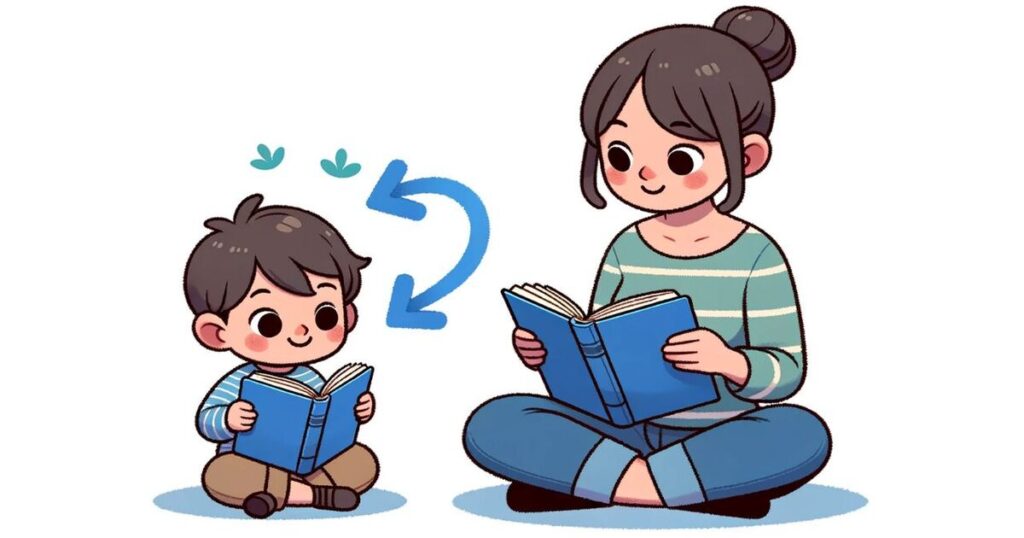
When to Consult Your Child’s Pediatrician
Look, while it’s completely normal for toddlers to love repetition—playing the same games, belting out the same songs, or bombarding you with the same questions—there are times when you might need to pause and consider if a check-in with the pediatrician is warranted.
Children don’t just repeat things for the fun of it; repetition is a crucial part of their development. But if you notice that they don’t understand new words or phrases and continue to repeat speech in a super specific way past the age of 3, that might be a red flag.
It could be indicative of a developmental disorder like Autism Spectrum Disorder (ASD). As Dr. Poinsett notes, other behaviors like hand flapping and body rocking, or obsessively lining up objects, could also be concerning if they persist into later childhood.
The bottom line? If something feels off, or you just get bored of analyzing your toddler’s behavior and think professional input is needed, don’t hesitate. Reach out to your child’s pediatrician just to be sure. Trust your gut; it’s always better to be safe than sorry.
Final Thoughts: The Bigger Picture on Toddler Repetition
Whew, we’ve covered a lot of ground, haven’t we? From the importance of repetitive behavior in your child’s overall development to the nitty-gritty of how to handle and predict those infinite “why” questions, we’ve delved deep into the world of toddler repetition. And let’s be honest, it’s a world that’s both fascinating and, at times, a little exhausting.
But here’s the thing to remember: your toddler isn’t just being repetitive to test your patience (although it might feel that way sometimes). They’re building crucial skills that will serve them well throughout their lives. Whether it’s mastering words and phrases, gaining a sense of security, or even fostering emotional intelligence, repetition does play a vital role in early childhood development.
So the next time you find yourself sighing at the thought of reading the same book for the hundredth time or answering yet another round of “why” questions, take a step back. Remember the benefits of repetition; you’re an active participant in your child’s learning journey. And that’s a loop worth being stuck in.
Thanks for sticking with us through this exploration of why toddlers love repetition. Here’s to embracing the repeats and appreciating the beautiful, repetitive rhythms of childhood. Cheers!

